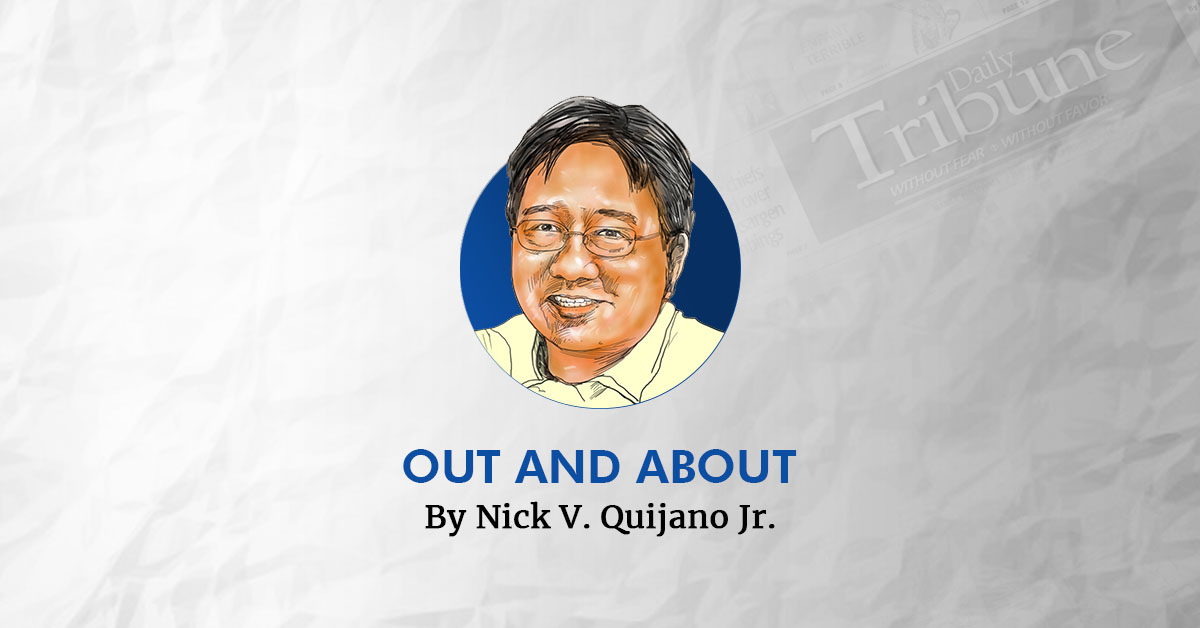“I am a senator, you must respect me!” So squalled a newbie senator last week.
As I had become so numb to self-important preening of our “servant politicians,” the remark, at first, barely managed to register as revoltingly grotesque.
A day later, I was puking. Revolted particularly by the forceful declarative “must.”
Must? No can do!
No way is respect demanded even if it so happens a title is appended to a name like a senator. Respect is always earned, as the clichéd dictum goes.
Nonetheless, I won’t dwell so much on how repellant self-importance can be when trying to earn respect.
Suffice it to say our newbie senator’s malodorous remark, to my mind, is a slip of insecurities.
How can we tell? No easy answer here. A rule of thumb though is that when someone is insecure his or her lips move.
Neither am I going to name our newbie. It’s for no other reason than I’m against our celebrity culture occupying massive portions of our political landscape. Not publicizing the names of several certified celebrity cretins and buffoons is a rearguard action to stave off the complete triumph of celebrity culture in our politics.
As such too, I won’t even detail why the remark was made. Enough to say here what the late Christopher Hitchens quipped about quotations: “A quotation is by definition an excerpt from context.”
Taking our newbie’s remark out of context has its uses. When I ran across it my thoughts wandered off towards questions of personalities and political power. Vaguely, my thoughts hovered on this question: Can someone, who claims to have the powers of a leader and then wants respect, back up those claims even when he or she had personality traits to be a leader in the first place?
Coincidentally, when our newbie politician made his remark I happened to be reading great historian and Hitler expert Ian Kershaw’s recently released book “Personality and Power”
Generally, what I got out of Kershaw is that I unlearned several naïve notions about personalities and power.
It isn’t that when a particular individual (like the newbie senator) stands out, comes to prominence, attains power, and can exercise that power to effect political change plainly is related to specific traits of personality, perceived strengths of character and ability.
Rather, Kershaw makes it clear that political context and conditions rather than personality characteristics count more in gaining and keeping political power.
In the case of our newbie senator, this means we can readily forget whatever personality quirks he happens to have or his recent vote-gathering achievement, or his status as a celebrity.
Instead, we can scrutinize him and whatever remarks he made or will make in light of the political and cultural construction of our times.
Such is “the basis of the political scientist Archie Brown’s stimulating and penetrating analysis of modern political leadership, whose starting point is that ‘leaders everywhere operate within historically conditioned political cultures,’” points out Kershaw.
Karl Marx’s famous 1852 dictum is also echoed here: “Men make their own history, but not as they please, in conditions of their own choosing, but rather under those directly encountered, given, and inherited.”
Using those as guideposts, we can go off in many directions analyzing were in our “historically conditioned political culture” in which our newbie senator, a political nonentity before this year, “inherited” to attain political power.
Limiting myself, the striking thing about the rise of our newbie senator is the Filipino’s residual addiction to authoritarian power, even despotic power.
Now “despotic power, or power over states power, is exercised directly by an authoritarian leadership that demands and expects complete obedience to commands from above (backed by high levels of coercion).”
So when someone utters “I’m a senator, you must respect me” it is actually a stern authoritarian demand for total obedience from a budding despot.
Contrast that system where power decides everything to that where power is diffused throughout a society penetrated by a network of institutions and organizations and not by personalities.
In that kind of set-up, no one can dare make an officious remark about total obedience since one must work within a system that rests on democratically argued consensus.
Email nevqjr@yahoo.com.ph
